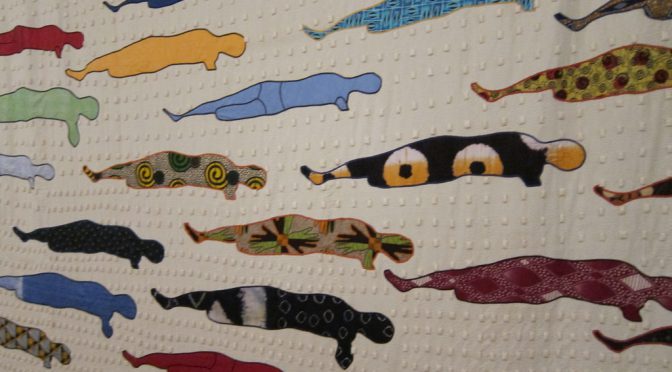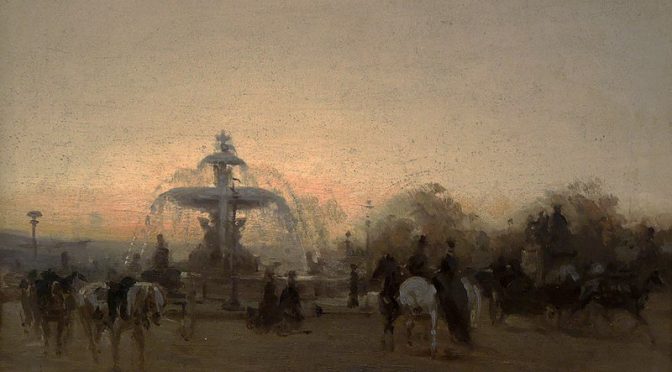Zdivočelí divočáci: měnící se kosmopolitika lovu v Evropě i mimo ni
Osa II: Normy a transgrese
Kontakt: broz@eu.cas.cz
Lu děk Brož je výzkumným pracovníkem Etnologického ústavu Akademie věd České republiky. Od února 2018 je partnerem programu TANDEM platformy CEFRES s projektem nazvaným “Zdivočelí divočáci: měnící se kosmopolitika lovu v Evropě i mimo ni”. Po magisterském studiu etnologie na Karlově univerzitě v Praze získal titul M.Phil. a Ph.D. v sociální antropologii na Univerzitě v Cambridgi a následně byl postdoktorandem v Institutu Maxe Plancka pro sociální antropologii v Halle.
děk Brož je výzkumným pracovníkem Etnologického ústavu Akademie věd České republiky. Od února 2018 je partnerem programu TANDEM platformy CEFRES s projektem nazvaným “Zdivočelí divočáci: měnící se kosmopolitika lovu v Evropě i mimo ni”. Po magisterském studiu etnologie na Karlově univerzitě v Praze získal titul M.Phil. a Ph.D. v sociální antropologii na Univerzitě v Cambridgi a následně byl postdoktorandem v Institutu Maxe Plancka pro sociální antropologii v Halle.
Luďkovým dlouhodobým odborným zájmem je z geografického hlediska Sibiř, konkrétně Republika Altaj, kde prováděl rozsáhlý etnografický terénní výzkum. Je fascinován tím, jak lidé žijí v krajině a z krajiny, kterou považují za v nepřeneseném smyslu slova živou a která je současně domovem světově proslulého archeologického dědictví i dopadovou zónou druhých stupňů raket z kosmodromu Bajkonur. Inspirován současnými studiemi vědy a technologií Luděk sledoval, jakým způsobem figurují sporné negativní externality vesmírného průmyslu a archeologické práce v každodenní reflexivitě místních obyvatel i lokálních politikách identity operujících v termínech postsovětské etno-revitalizace.
Etnograficky Luděk věnoval velkou pozornost tomu, co v návaznosti na dílo Eduarda Viveirose de Castro nazval “pastorálním perspektivismem” – tedy, že v Altajském kontextu je rozdíl mezi lovem a pastevectvím otázkou perspektivy, jelikož divoká zvířata jsou místními pastevci a lovci považována za dobytek lokálních duchů hospodářů. Při dalším zkoumání delikátních otázek etiky lovu se Luděk soustředil na altajské koncepty osoby a etiologie smrti, které mu pomohly pochopit, proč místní obyvatelé považují archeologické vykopávky za hrozbu, a přiměly ho ke zkoumání palčivé otázky sebevraždy na Altaji. Ve snaze o vyplnění mezer v současném výzkumu se Luděk aktivně podílí na ustanovení antropologie sebevraždy jako nedílné součásti etablující se kritické suicidologie.
CV
Vzdělání
2008 Ph.D. v Sociální Antropologii, Univerzita v Cambridgi
2003 M.Phil. v Sociální Antropologii, Univerzita v Cambridgi
2002 Mgr. v Etnologii, Karlova Univerzita
Vybrané publikace
Studie v odborných časopisech
- Forthcoming ‘Ghost and the Other: Dangerous Commensalities and Twisted Becomings.’ Anthropologie & sciences humaines69
- 2015 ‘Siberian Automobility Boom: From the Joy of Destination to the Joy of Driving There.’ Mobilities10(4): 552-570. with Joachim Otto Habeck
- 2015 ‘Introduction: Experience and Emotion in Northern Mobilities.’ Mobilities10(4): 511-517. with Joachim Otto Habeck
- 2015 ‘Přísliby a úskalí symetrie: sociální vědy v zemi za zrcadlem.’ Cargo – journal of socio-cultural anthropology1,2: 5-33. with Tereza Stöckelová. (The Promises and Difficulties of Symmetry: Through the Looking-Glass and What the Social Sciences Found There.)
- 2012 ‘When Good Luck is Bad Fortune: Between too Little and too Much Hunting Success in Siberia.’ Social Analysis – The International Journal of Social and Cultural Practice56 (1-2): 73-89. with Rane Willerslev
- 2009 ‘Substance, Conduct and History: “Altaian-ness” in the 21 Century’. Sibirica: Journal of Siberian Studies8 (2): 43-70.
- 2007 ‘Pastoral Perspectivism: A View from Altai’. Inner Asia (special issue – Perspectivism) 9 (2): 291-310.
Editované monografie
- 2015 Suicide and Agency: Anthropological perspectives on self-destruction, personhood and power. Farnham: Ashgate. Edited with Daniel Münster.
Kapitoly v knihách
- 2015 The anthropology of suicide: Ethnography and the tension of agency. In Suicide and Agency: Anthropological perspectives on self-destruction, personhood and power. Eds L. Broz & D. Münster. Farnham: Ashgate, pp. 3-23, with Daniel Münster.
- 2015 Four Funerals and a Wedding: Suicide, Sacrifice and (non-)Human Agency in a Siberian Village. In Suicide and Agency: Anthropological perspectives on self-destruction, personhood and power. Eds L. Broz & D. Münster. Farnham: Ashgate, pp. 85-102.
- 2015 Vom Himmel gefallen: Auf dem Weg zu einer symmetrischen Anthropologie der Raumfahrtindustrie. In Lost in Things: Fragen an die Welt des Materiellen, ihre Funktionen und Bedeutungen. Eds P. W. Stockhammer & H. P. Hahn. Münster: Waxmann, pp. 81-103.
- 2010 ‘Spirits, Genes and Walt Disney’s Deer: creativity in identity and archaeology disputes (Altai, Siberia)’. In The Archaeological Encounter: Anthropological Perspectives. Eds P. Fortis & I. Praet. St Andrews: CAS, pp. 263-297.
- 2009 ‘Conversion to Religion? Negotiating Continuity and Discontinuity in Contemporary Altai’. In Conversion After Socialism: Disruptions, Modernities and the Technologies of Faith. Ed. M. Pelkmans. Oxford: Berghahn Books, pp. 17-37.
Recenze, reporty, polemiky a rozhovory
- 2015 ‘Symetrie je často stranická: rozhovor se Zdeňkem Konopáskem’ Cargo – journal of socio-cultural anthropology 1,2: 117-132. with Tereza Stöckelová. (Symmetry is Often Partial: An Interview with Zdenek Konopasek.)
- 2015 ‘Druhý pohled na myslící lesy Eduardo Kohna’ Cargo – journal of socio-cultural anthropology 1,2: 158-161. (A Second Look at Eduardo Kohn’s thinking forests.)
- 2015 ‘I, Too, Have a Dream … About Suicidology.’ Social Epistemology Review and Reply Collective 4 (7): 27-31.
- 2014 ‘Morten A. Pedersen: Not Quite Shamans: Spirit Worlds and Political Lives in Northern Mongolia.’ Sociologický časopis / Czech Sociological Review 50 (2): 317-319.
- 2010 ‘Antropologie Příbuzenství. Příbuzenství, manželství a rodina v kulturně antropologické perspektivě. Jaroslav Skupnik.’ Cargo – journal of socio-cultural anthropology 1,2: 195-8.




